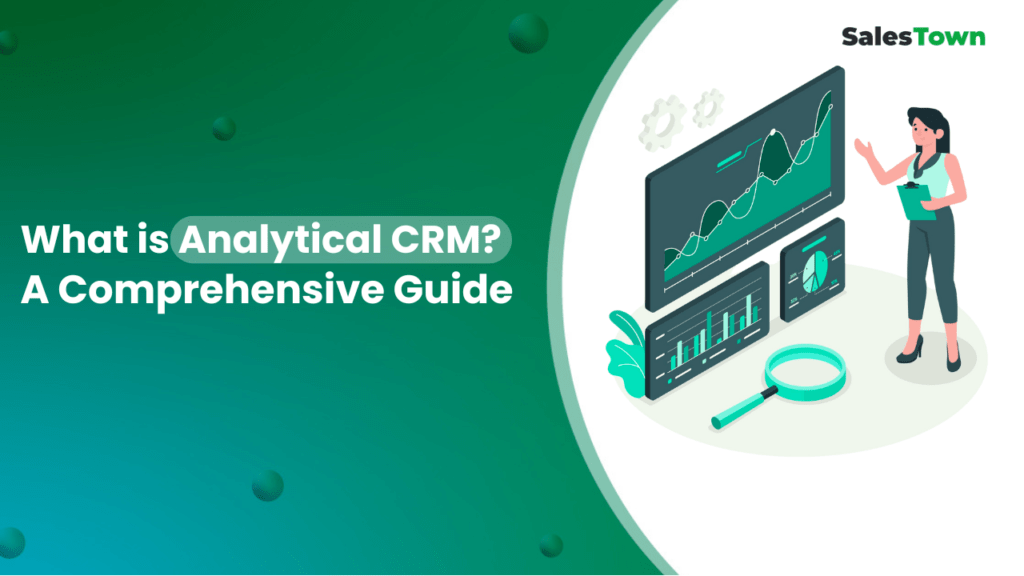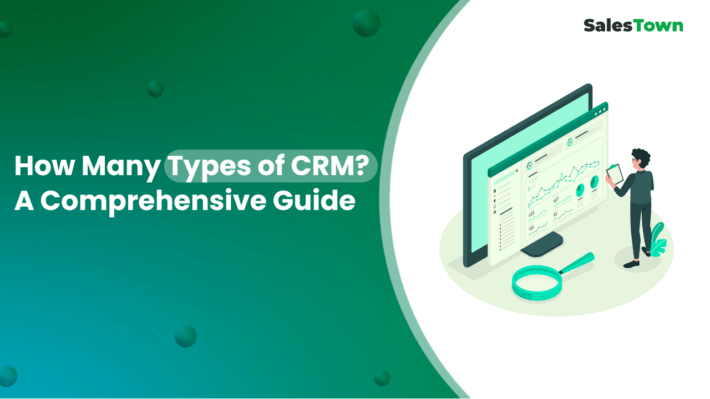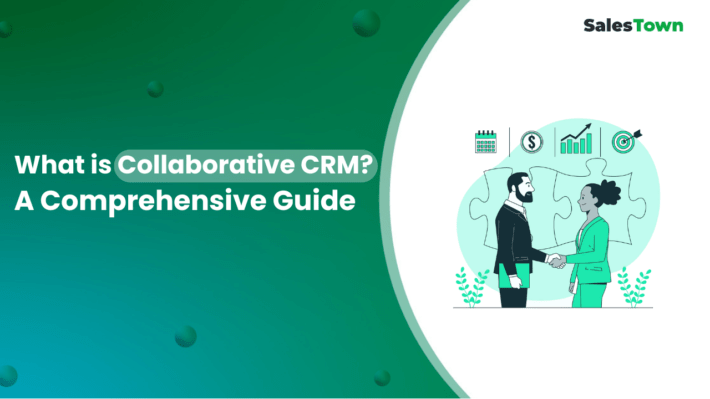What is Analytical CRM ? Definition, Benefits & Best Practices for 2025

Customer data has become one of the most valuable resources for businesses today. Every interaction a customer has with your business—from browsing your website to purchasing products—generates valuable insights. However, collecting this data isn’t enough. Businesses need tools to analyze this data and make decisions that improve customer relationships, drive sales, and optimize processes.
This is where Analytical CRM Software comes in. It analyzes customer data to provide actionable insights that businesses can use to refine their strategies. Analytical CRM goes beyond simply storing customer information; it helps businesses understand their customers better, predict future trends, and align their resources for maximum impact.
This blog will cover Analytical CRM in detail, including its features, benefits, applications, and why your business should consider using it.
What is Analytical CRM?
Analytical CRM is a type of Customer Relationship Management (CRM) system that is focused on analyzing customer data to gain insights and guide decision-making. Unlike operational CRM handles daily customer interactions like emails or support tickets, Analytical CRM works behind the scenes to identify trends, measure performance, and forecast future outcomes.
At its core, Analytical CRM collects data from various customer touchpoints and processes it using tools like data mining, machine learning, and predictive analytics. It helps answer questions like:
- What products or services are customers most interested in?
- Which customer segments generate the most revenue?
- Why are certain customers leaving, and how can you stop them?
- What marketing strategies work best for specific customer groups?
By answering these questions, Analytical CRM gives businesses the insights they need to improve their strategies and achieve their goals.
How Does Analytical CRM Work?
Understanding how Analytical CRM functions can give you a clearer picture of its importance. The process typically involves the following steps:
1. Data Collection
Analytical CRM gathers customer data from multiple channels, including:
- Website visits and click patterns
- Social media interactions
- Sales and transaction history
- Customer feedback and surveys
- Email campaign performance
This data is stored in a centralized database, making it accessible for analysis.
2. Data Processing
Once the data is collected, Analytical CRM uses tools like data mining and statistical analysis to process it. These tools identify patterns, correlations, and trends that might not be immediately obvious.
For example, an Analytical CRM might reveal that customers who purchase a specific product are more likely to buy another complementary item within 30 days.
3. Data Analysis
Advanced analytics techniques are used to interpret the data. This step often includes:
- Behavioral analysis to understand customer preferences
- Predictive modeling to forecast future actions
- Segmentation to group customers with similar characteristics
4. Insights Generation
After analyzing the data, Analytical CRM provides actionable insights. These might include recommendations for:
- Marketing campaigns tailored to specific customer groups
- Sales strategies to upsell or cross-sell products
- Customer service improvements based on feedback
5. Implementation
The final step is putting these insights into action. Businesses use the information to refine their strategies, improve customer experiences, and drive better outcomes.
Key Components of Analytical CRM
To fully understand Analytical CRM, it’s essential to familiarize yourself with its key components:
1. Data Warehousing
A data warehouse is a centralized repository that stores large volumes of structured and unstructured data from various sources. It serves as the foundation for Analytical CRM, providing a unified view of customer information.
2. Data Mining
Data mining involves using advanced algorithms to discover hidden patterns and relationships within large datasets. This process helps businesses uncover valuable insights that may not be immediately apparent.
3. Predictive Analytics
Predictive analytics uses historical data and statistical algorithms to forecast future trends and behaviors. This component is crucial for anticipating customer needs and proactively addressing potential issues.
4. Customer Segmentation
Customer segmentation involves grouping customers based on shared characteristics, behaviors, or preferences. This allows businesses to tailor their marketing efforts and product offerings to specific customer segments.
5. Reporting and Visualization
Analytical CRM systems often include robust reporting and visualization tools that make it easy to interpret complex data and share insights across the organization.
Benefits of Analytical CRM
Analytical CRM can transform the way businesses operate. Here are some of its key benefits:
1. Improved Customer Understanding
Analytical CRM provides a 360-degree view of customer behavior and preferences. Businesses can use this information to:
- Personalize marketing campaigns
- Offer products and services that match customer needs
- Build stronger relationships with customers
2. Enhanced Decision-Making
By using data-driven insights, businesses can make smarter decisions. For example:
- Identifying which marketing channels deliver the best ROI
- Determining which customer segments to prioritize
- Forecasting future trends to plan resources effectively
3. Increased Customer Retention
Analytical CRM helps businesses identify at-risk customers and take proactive steps to retain them. This might include personalized offers, better support, or loyalty programs.
4. Optimized Marketing Campaigns
With Analytical CRM, businesses can:
- Create targeted campaigns for specific customer segments
- Optimize ad spend by focusing on high-performing channels
- Analyze the performance of past campaigns to improve future ones
5. Better Sales Performance
Sales teams can use insights from Analytical CRM to:
- Identify high-value leads
- Prioritize opportunities with the highest potential
- Cross-sell or upsell products based on customer behavior
6. Streamlined Operations
By identifying inefficiencies in processes, Analytical CRM helps businesses streamline their operations, saving time and resources.
Analytical CRM vs. Operational CRM vs. Collaborative CRM
While all CRM systems aim to improve customer relationships, each type has a distinct focus:
- Operational CRM: Focuses on managing day-to-day customer interactions, like sales and support.
- Collaborative CRM: Helps different departments, like marketing, sales, and customer service, work together by sharing customer information.
- Analytical CRM: Concentrates on analyzing customer data to provide insights for strategic decision-making.
Businesses often use these CRM types together for a complete customer management solution.
Why SalesTown is the Best Choice for Analytical CRM
SalesTown’s CRM platform integrates Analytical CRM tools that help businesses turn data into actionable insights. Here’s what makes SalesTown stand out:
- Real-Time Data Analytics: Analyze customer behavior in real time to stay ahead of trends.
- Customizable Dashboards: Get a clear overview of key metrics and performance indicators.
- Powerful Predictive Tools: Forecast future customer actions and sales trends.
- Comprehensive Segmentation: Group customers based on preferences, location, or purchase history.
- Seamless Integration: Connect with your existing tools to enhance your workflows.
With SalesTown, you can align your teams, improve decision-making, and build stronger customer relationships.
Implementing Analytical CRM: Best Practices
To maximize the benefits of Analytical CRM, consider the following best practices:
- Define Clear Objectives: Establish specific goals for your Analytical CRM initiative, such as increasing customer retention or improving marketing ROI.
- Ensure Data Quality: Implement processes to maintain clean, accurate, and up-to-date customer data.
- Invest in Training: Ensure your team has the skills necessary to interpret and act on data-driven insights.
- Foster a Data-Driven Culture: Encourage decision-makers across the organization to rely on data and analytics when making strategic choices.
- Start Small and Scale: Begin with a pilot project to demonstrate value before rolling out Analytical CRM across the entire organization.
- Continuously Refine: Regularly review and update your analytical models and processes to ensure ongoing relevance and effectiveness.
- Prioritize Data Security: Implement robust security measures to protect sensitive customer information.
- Leverage Real-Time Analytics: Where possible, use real-time data analysis to enable quick decision-making and timely interventions.
Overcoming Challenges in Analytical CRM Implementation
While the benefits of Analytical CRM are clear, implementation can come with challenges:
- Data Silos: Break down organizational silos to ensure comprehensive data integration.
- Data Privacy Concerns: Address customer privacy concerns by implementing transparent data collection and usage policies.
- Resistance to Change: Overcome resistance by demonstrating the value of data-driven decision-making and providing adequate training.
- Technology Integration: Ensure your Analytical CRM solution integrates seamlessly with existing systems and processes.
- Skill Gaps: Address any skill gaps within your team through training or by partnering with analytics experts.
The Future of Analytical CRM
As technology continues to evolve, so does the potential of Analytical CRM. Here are some trends to watch:
- AI and Machine Learning: Expect more sophisticated AI-powered analytics capabilities that can uncover even deeper insights.
- Real-Time Analytics: The ability to analyze and act on data in real-time will become increasingly important.
- Predictive Customer Service: Anticipating customer needs before they arise will become the new standard in customer service.
- Integration with IoT: The Internet of Things will provide new data sources for even more comprehensive customer insights.
- Enhanced Personalization: Analytical CRM will enable hyper-personalized experiences across all customer touchpoints.
Conclusion
Analytical CRM is more than just a tool—it’s a strategy for growth. By analyzing customer data and uncovering actionable insights, it empowers businesses to make smarter decisions, enhance customer satisfaction, and drive revenue growth.
Whether you’re running an e-commerce store, a healthcare organization, or a financial institution, Analytical CRM can help you achieve your goals.
If you’re looking for a CRM solution that combines the power of analytics with ease of use, SalesTown is here to help. Start leveraging your data today to unlock your business’s full potential!
Ready to take the next step? Explore SalesTown’s Analytical CRM tools now and transform your business with data-driven insights!
FAQ (Frequently Asked Questions)
Q: What is Analytical CRM?
A: Analytical CRM is a type of customer relationship management that focuses on analyzing customer data to gain insights and improve business decisions.
Q: How does Analytical CRM help businesses?
A: It helps businesses understand customer behavior, predict trends, and make data-driven decisions to improve marketing, sales, and customer service.
Q: What kind of data does Analytical CRM use?
A: It uses various customer data, including purchase history, demographics, interactions with the company, and feedback to create comprehensive customer profiles.


